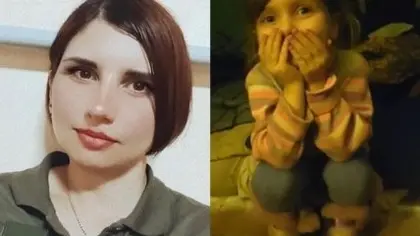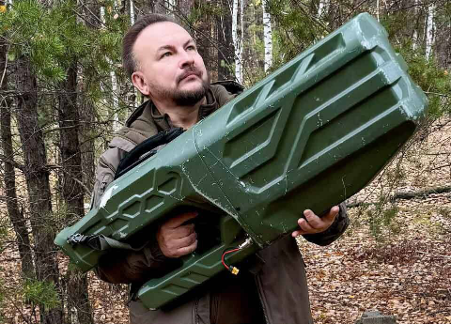Ukrainian nurse Viktoria Obidina spent over five months in Russian captivity, forced to drink dirty water, endure beatings and hunger.
But it was not knowing the fate of her four-year-daughter that tormented her the most.
JOIN US ON TELEGRAM
Follow our coverage of the war on the @Kyivpost_official.
“They brought us water from a lake, sometimes there were tiny fishes in it,” recalled Obidina, who was returned to Ukraine earlier this month as part of a prisoner swap with Russia. “In August, when the (lake) started blooming, the water tasted of algae.”
In an interview with AFP on Monday, 26-year-old Obidina recounted her ordeal in the notorious Russian-controlled prison in the town of Olenivka in eastern Ukraine.
When Russia invaded its neighbour on February 24, Obidina, an army nurse in the southern port city of Mariupol, was dispatched to Azovstal, the city’s vast steel plant where hundreds of Ukrainian soldiers hunkered underground in a network of Soviet-era tunnels.
Obidina’s four-year-old daughter Alisa had been staying at the family’s apartment with a nanny.
But as food supplies ran out in the besieged city and Russian bombardment became relentless, Obidina made the difficult decision to take her daughter with her to Azovstal.
“I understood very well: if not us, then who will care for the wounded?”
– Moments of despair –
In the underground bunker, the four-year-old helped her mother treat wounded patients.

Zelensky Slams Russia’s ’Despicable’ Use of Cluster Munitions in Energy Strikes
“She was such a good sport, she was so mature! She knew very well that she could not distract me,” Obidina recalled. “She helped me, she gave out medicines. I would tell her which ones and to whom and she would help me.”
But there were also moments of despair for Alisa.
“She asked me, “Mom, is this our last day?”
“Of course, I told her that no, we will live, everything will be good. But the shelling was massive. We were terrified.”
It was during one of those moments that a soldier at Azovstal recorded a short video with Alisa, where the ponytailed girl, hiding in the dark bunker with a book in her hands, asks to go home.
The video went viral and helped build international pressure on Russia to evacuate those remaining at Azovstal after the city had fallen to Moscow. But it also proved fateful for Obidina.
In May, Obidina and her daughter left the plant together with a group of Ukrainian civilians as part of a hard-won UN-led evacuation agreement.
But Russian forces recognised the mother and daughter from the online video, and Obidina was arrested. Before she was taken away, she managed to hand Alisa to another evacuee.
“I was told that the child will be sent to an orphanage and I am being taken prisoner.”
– Psychological rehab –
Obidina said investigators beat her to force her to disclose information about the Ukrainian army.
In the Olenivka prison, she was kept with some two dozen inmates in a cell designed for six people.
All this time, Obidina had no news of her daughter and no idea what awaited her.
Earlier this month, Obidina was transferred to the Russian city of Taganrog together with other female inmates to what she thought would be another prison. The detainees had their hands tied, they were blindfolded and put on a plane.
Finally, they were taken by bus to Ukraine-controlled territory and Obidina realised a prisoner swap was under way.
She also learned that her daughter was safe.
With the help of distant relatives and volunteers, Alisa, who turned five earlier this month, was reunited with her grandmother in Poland.
Obidina says she lost 10 kilos (22 pounds) while in captivity and is now undergoing psychological rehabilitation in a clinic in Dnipro. She plans to leave the army and devote herself to her daughter.
In Poland, Alisa is attending daycare and learning Polish and the mother and daughter were able to speak by phone.
“She grew up so much,” Obidina said.
“She said she missed me a lot and is waiting to see me.”
You can also highlight the text and press Ctrl + Enter






